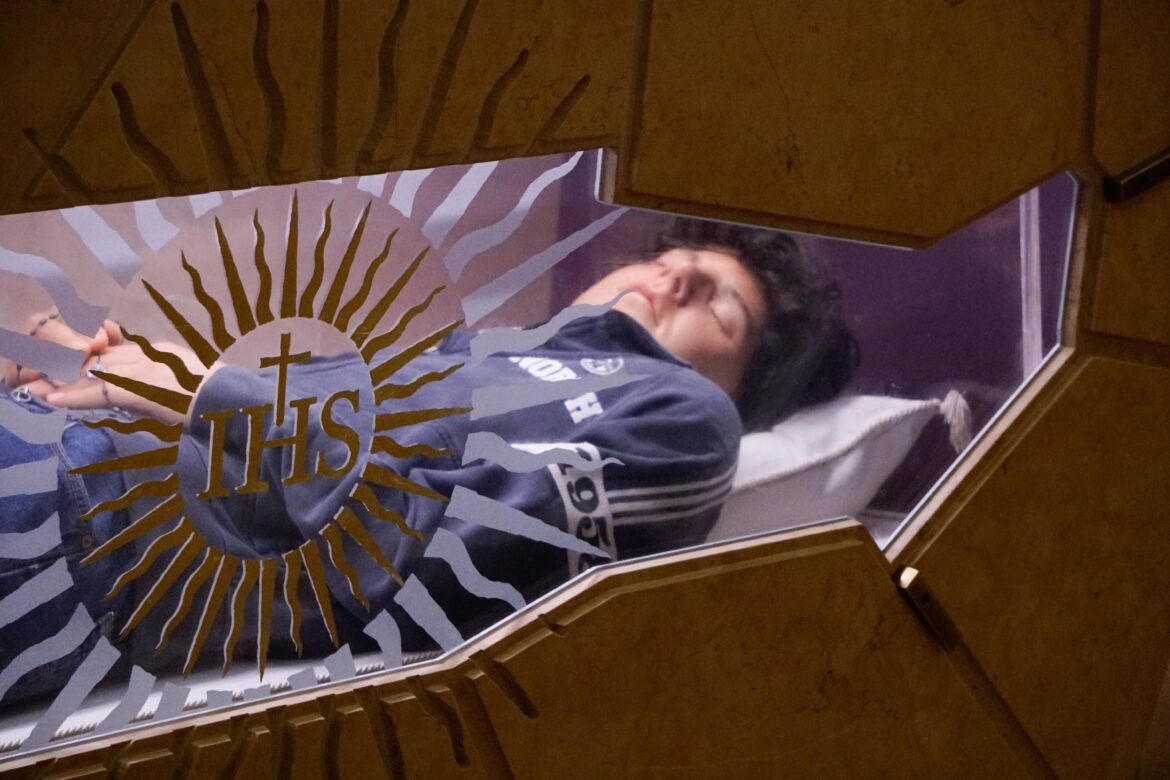Eighty thousand adolescents thought they were traveling to Rome for the much-anticipated canonization of Carlo Acutis. Instead, many were in the Eternal City for the Holy Father’s funeral.
A pope’s death isn’t like a presidential election or even the death of a king. Popes don’t have heirs. So, when the chair of St. Peter is empty, everything comes to a standstill. No bishops can be named — or retired. No treaties can be signed. And no new saints can be canonized. There is, of course, a way to work around that; but not on a week’s notice. And so, Carlo Acutis, the “first millennial saint,” will remain “blessed” for a while longer.
I imagine the kids are disappointed. I would be. But the hiccup in scheduling gives us all a little extra time to learn more about Carlo — and why the Catholic Church has deemed him worthy of canonization. I’d recommend the new documentary film, “Carlo Acutis: Roadmap to Reality.”
The Acutis popularity bandwagon is broad and deep. That’s why it shouldn’t surprise us that a degree of skepticism about his cause has been brewing, not only among some of the faithful but in the secular world. As a recent article by John Phipps in (of all publications!) The Economist observes, “Even people with a special devotion to him find it hard to say exactly what Carlo did. Nothing in his sparse life story explains that this ordinary-seeming teenage boy is about to become the first great saint of the 21st century.”
Authentic sanctity
I won’t argue with anyone who considers Carlo’s resumé unimpressive. He died of leukemia, after all, at 15. But I will challenge the notion that authentic sanctity produces a biography that reads like a fantasy or adventure novel. Few saints are suitable subjects for a Marvel movie. They are heroes, but not in that way.
Living in relationship with God makes us more fully who we were created to be. And God creates a whole lot of ordinary people with thin résumés. Holiness is a universal call. “Ordinary” is precisely what holiness is supposed to be.
The canonization process is long and arduous. It took 500 years for Joan of Arc. Building a cause requires time, money and expertise. Carlo’s skeptics note that his parents, and his mother in particular, did everything they could to push their son’s process along.
Perhaps that is the case. Even so, that wouldn’t be any different than the religious orders who appoint their members to the tasks of documenting the cause, promoting it, and funding whatever costs are involved to achieve the canonization of their founders or members.
A saint for our time
The timing is another source of controversy. God makes saints, and the church merely recognizes them. When someone is raised to the altar, it often seems that God is trying to reach the people of a particular time.
A church encrusted with wealth and corrupted by worldly power needed the poverty of men like Francis and Dominic. A world of burgeoning complexity where people struggled with the changes brought about by industrial and technological advancements needed the childlike simplicity of Thérese’s “little way.” A society in which marriage and family life are derided and attacked needs the devotion of Louis and Zélie Martin and the courage of the Ulma family.
So, what of Carlo Acutis? In our utilitarian culture, achievements are everything. Perhaps we need a saint who wasn’t extraordinary at all; one who searched for purpose the way so many of us do but found it in Christ Jesus.
We have never been lonelier. Perhaps we need someone who enthusiastically engaged digital technology but had the wisdom to limit himself to an hour of video games a week; someone who prioritized sharing his life with others and spending time with Jesus in Eucharistic adoration.
Living in a world mediated by filters and images, screens and social media has made us more virtual and less real. Maybe we need a normal teenage boy to remind us that we are not mere spectators, but children of God redeemed and reborn in Christ.
Jesus does not call digital disciples or ask us to live lives of virtual virtue. Instead, he perpetuates his real and personal presence to us in the Eucharist. What Carlo Acutis shows us is that the Gospel is not disconnected from reality, and a completely ordinary life in our world can be holy.
Jaymie Stuart Wolfe is a sinner, Catholic convert, freelance writer and editor, musician, speaker, pet-aholic, wife and mom of eight grown children, loving life in New Orleans.




